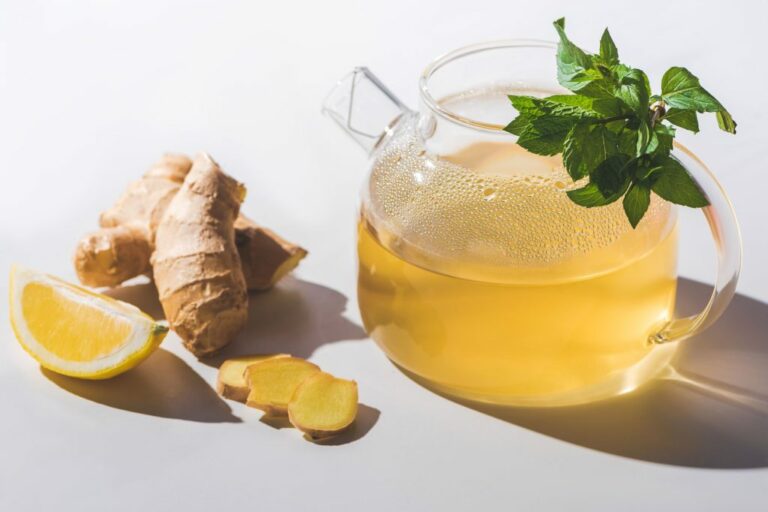Does Milk Help Heartburn or Make It Worse? What You Should Know
Ever had that burning sensation creeping up your chest after a big meal and thought, “Maybe a glass of milk will help”? Yeah, me too. For years, I swore by a quick sip of cold milk to ease heartburn. It felt like an instant fix. But as someone who’s battled reflux since college (thanks, late-night pizza), I’ve learned the truth is a little more… complicated. Milk can be both a friend and a foe when it comes to acid reflux, depending on what type you’re reaching for and how your body reacts. Let’s break down the dairy dilemma, bust some myths, and figure out what actually works when your chest feels like it’s on fire.
Understanding Heartburn and How It Starts

Heartburn, contrary to how it sounds, has nothing to do with your heart. It’s that gnawing, fiery discomfort that rises from your stomach up into your chest and throat. The culprit? Acid backing up into the esophagus. When the lower esophageal sphincter (LES) relaxes at the wrong time—or doesn’t close properly—stomach acid sneaks its way up, leading to the classic burn.
Some of the usual triggers include:
- Spicy or fatty meals
- Eating too fast or too much
- Alcohol, caffeine, and carbonated drinks
- Stress and lying down too soon after eating
So where does milk fit in? That glass of creamy goodness seems like a soothing balm when the acid hits. But depending on the type of milk and your individual response, it might be helping… or quietly making things worse later.
Does Milk Really Help Heartburn?

The Initial Relief
Let’s talk about that immediate relief first—because it’s real. Cold milk has a temporary neutralizing effect on stomach acid. It coats the esophagus with a cool layer, which can soothe inflammation and reduce irritation in the short term.
According to Mayo Clinic, dairy might offer minor, short-term relief for some heartburn sufferers. But this soothing effect doesn’t last long—especially if you’re drinking whole milk or sweetened milk products.
The Problem with Full-Fat Dairy
Here’s the catch: full-fat milk contains a good amount of fat, and fatty foods can slow digestion and weaken the LES. This means your temporary relief could quickly backfire, leading to a rebound effect of even more acid being pushed back up.
This is one of the reasons experts at the National Institute of Diabetes and Digestive and Kidney Diseases (NIDDK) often advise GERD patients to avoid high-fat dairy entirely.
Low-Fat vs. Whole Milk: Which One’s Better?

If you’re not ready to give up milk, go for low-fat or non-fat varieties. These have less fat content, which means they’re less likely to trigger reflux symptoms. From my own experience, switching from whole milk to skim milk made a noticeable difference—no more post-cereal regret every morning.
But even then, results can vary. Some people find even skim milk bothersome, while others tolerate it just fine. It’s all about knowing your own body and experimenting safely.
What About Lactose-Free or Plant-Based Options?
Good question. For those who are lactose intolerant or just want to avoid dairy altogether, there are plenty of alternatives:
- Almond milk: Naturally alkaline and low in fat. Often GERD-friendly.
- Oat milk: Gentle on the stomach, but watch for added sugars.
- Soy milk: High in protein, but can be a reflux trigger for some.
- Coconut milk: Fatty but tolerable for some in small amounts.
I personally found almond milk to be a lifesaver. It’s light, cool, and doesn’t make me feel like I need to pop antacids afterward. Just make sure you’re picking an unsweetened version.
You can dive deeper into almond milk’s GERD benefits here if you’re curious.
Buttermilk: Yay or Nay?

Surprisingly, traditional buttermilk (not the processed, tangy kind) may actually offer some relief. It’s low in fat, contains probiotics, and can help with digestion. In Ayurvedic practices, buttermilk is even used as a natural remedy to calm digestive fire.
But again—this comes down to the individual. If you’re going to try it, go for plain, cultured buttermilk with no added flavors or sugars.
We’ve explored more on this here: Buttermilk and Reflux.
What Else Can You Try Besides Milk?

So if milk isn’t the miracle cure it’s cracked up to be, what can actually help when reflux hits hard?
- Aloe vera juice (unsweetened, decolorized): known for soothing the GI tract.
- Licorice root (DGL): helps strengthen the mucus lining of the stomach.
- Slippery elm: a classic herbal remedy that coats and calms the esophagus.
- Ginger tea: mildly anti-inflammatory and can ease nausea and reflux.
All these are great natural options, and you can explore more science-backed natural GERD relief strategies here.
When Milk Backfires: Why Relief Can Turn Into Regret

Let me be honest—milk helped me until it didn’t. That first few minutes of relief gave me hope. But within an hour, I’d be curled up with even worse heartburn than I started with. And I’m not alone. This “rebound effect” is one of the sneakiest things about using milk as a remedy for reflux.
When you drink milk, your stomach temporarily neutralizes acid. But shortly after, your digestive system goes into overdrive to compensate, pumping out even more stomach acid. This overproduction can actually make symptoms worse than before, especially with whole milk or flavored dairy drinks loaded with sugar and fat.
That sweet vanilla milkshake might feel like a cure, but it’s just setting you up for another round of reflux fun. Trust me, I’ve learned this lesson the hard way, more than once.
The Dairy Dilemma: Why It’s Different for Everyone

Here’s the deal: reflux is incredibly individual. What triggers one person might actually soothe another. Some people drink whole milk daily without issues, while others can’t even look at yogurt without discomfort.
A few things that affect your body’s reaction:
- Your fat tolerance: If you’re sensitive to fatty foods, full-fat milk is likely to cause trouble.
- Lactose sensitivity: Some people mistake lactose issues for reflux symptoms. Bloating, cramps, and discomfort after dairy might not be acid—it could be lactose intolerance.
- Your baseline stomach acidity: If your acid levels are already high, dairy might push things over the edge.
Honestly, keeping a food journal helped me connect the dots. Once I started tracking how different types of milk made me feel, patterns became obvious. Skim milk in small amounts? Mostly fine. Ice cream late at night? Absolute disaster.
Myth-Busting: Common Misconceptions About Milk and Reflux

“Milk Neutralizes Acid Long-Term”
That’s the biggest myth. Milk may initially buffer acid, but it doesn’t stay effective. According to the National Library of Medicine, the buffering effect of milk lasts just a short while before acid levels rise again. In many cases, this leads to worse symptoms.
“All Dairy is Bad for Reflux”
Also false. Not all dairy is created equal. Fermented dairy like plain kefir or cultured yogurt—especially low-fat—might actually support gut health and improve digestion, assuming you tolerate lactose. The key is keeping fat content and sugar low.
“Chocolate Milk is a Great Reflux Fix”
Let’s shut this one down immediately. Chocolate is a known reflux trigger. Combine that with sugar and milk fat and you’ve got yourself a reflux bomb. I’ve been there—tempted by a cold glass of chocolate milk after dinner. Never again.
So What Should You Drink Instead?

If milk isn’t the magic bullet, what can you reach for when your chest starts to burn? Here are a few go-to options I’ve kept stocked in my fridge ever since I started managing reflux seriously:
- Alkaline water: Helps dilute stomach acid. A splash of aloe juice makes it even better.
- Chamomile or ginger tea: Mildly anti-inflammatory and relaxing.
- Oat milk (unsweetened): Feels rich but doesn’t trigger me. Smooth in coffee too!
- Coconut water (no added sugar): Hydrating and low acid, though not for everyone.
Bonus tip: sip, don’t gulp. And always aim for room temperature instead of icy cold—your stomach will thank you.
Timing is Everything: When You Drink Milk Matters

Did you know the timing of your drink matters just as much as what’s in it? I didn’t either, until my doctor asked how close to bedtime I was having my “relief milk.” Turns out, lying down after drinking—even milk—can mess with digestion and make reflux worse.
Here’s what I try to follow now:
- No milk (or big fluids) 2–3 hours before lying down.
- Small sips only during meals—not big gulps that fill your stomach.
- Never drink milk as a cure-all after a spicy or greasy meal.
These timing tweaks alone drastically reduced my night-time reflux flares. Combine that with a few dietary changes and it’s honestly been a game changer.
Still Curious? Dive Deeper Into the Root of the Problem

While dairy might play a small role in managing symptoms, the bigger picture is understanding what’s causing your reflux in the first place. It’s not always about one food or drink—it’s about patterns, habits, and even stress.
If you’re dealing with heartburn more than twice a week, it’s worth reading up on what might be triggering GERD behind the scenes. Some of the causes may surprise you—like sleep position, certain medications, or even dehydration.
What Doctors Really Say About Milk for Heartburn

Let’s be real—Google gives you a hundred answers, but nothing beats what an actual GI specialist says. I finally brought up my “milk trick” during a check-up after years of playing trial-and-error at home. My doc raised an eyebrow and asked, “Which kind of milk?” That’s when I realized even doctors are careful not to give blanket advice on this one.
The consensus among professionals, including gastroenterologists at Cedars-Sinai, is this:
- Milk is not a treatment for GERD, but might give short-term comfort.
- Low-fat dairy is less likely to trigger symptoms than whole-fat or flavored varieties.
- Persistent reflux requires lifestyle changes and possibly medical intervention, not just dietary swaps.
Basically, if you’re reaching for milk daily just to tame the burn, you’re probably ignoring a bigger issue. And that was a wake-up call for me.
Should You Ditch Milk Completely?

Not necessarily. Unless you’re lactose intolerant or clearly reacting to it, cutting out milk cold turkey might not be needed. What worked for me—and what many dietitians suggest—is this simple strategy:
- Start with switching to low-fat or non-fat milk. Observe how you feel.
- Test alternatives: almond, oat, rice, coconut—unsweetened is key.
- Watch your portions. Don’t chug milk after a big meal. Tiny sips = less risk.
You don’t have to live like you’re on a flavorless meal plan. You just have to know what your body tolerates. That took me months of messing up and experimenting—but it was worth it.
What I Personally Do Now (It Might Help You Too)

So where did I land with milk and reflux? Here’s what I’ve been doing lately that’s actually working—and keeps me mostly symptom-free without ditching everything I love:
- Skim milk in small amounts (no sugar added) is my safe zone.
- Almond milk is my go-to for smoothies, cereal, and even coffee.
- Greek yogurt (plain, low-fat) doesn’t trigger me and helps with digestion.
- I always wait at least two hours after eating before lying down.
- Ginger tea has replaced my nightly milk habit. It’s warm, calming, and doesn’t leave me bloated.
It’s been a journey. And sure, I miss downing a cold milkshake on a hot day without worrying about the afterburn—but now I know how to navigate those cravings smarter.
Explore More Relief Options

If milk isn’t giving you the lasting help you hoped for, don’t worry—there’s a whole world of strategies out there that might work even better. From adjusting your lifestyle and sleep position to incorporating natural remedies like aloe or chamomile, relief is possible. You don’t have to settle for half-measures.
And if you’re just starting to connect the dots with your own symptoms, I strongly recommend reading this guide on GERD symptoms you should never ignore. That piece helped me realize I was treating my reflux too casually—and it’s when things finally started to change.
Your Body, Your Call

Bottom line? Milk isn’t evil. But it’s also not the magical heartburn cure some people swear it is. It can either calm things down or stir them up, depending on the type, timing, and your unique digestion.
My best advice? Experiment mindfully. Keep track. Listen to your body. And if milk makes your symptoms worse, swap it for something kinder to your gut. You’ve got options—and you don’t have to figure them out alone.

Camellia Wulansari is a dedicated Medical Assistant at a local clinic and a passionate health writer at Healthusias.com. With years of hands-on experience in patient care and a deep interest in preventive medicine, she bridges the gap between clinical knowledge and accessible health information. Camellia specializes in writing about digestive health, chronic conditions like GERD and hypertension, respiratory issues, and autoimmune diseases, aiming to empower readers with practical, easy-to-understand insights. When she’s not assisting patients or writing, you’ll find her enjoying quiet mornings with coffee and a medical journal in hand—or jamming to her favorite metal band, Lamb of God.







